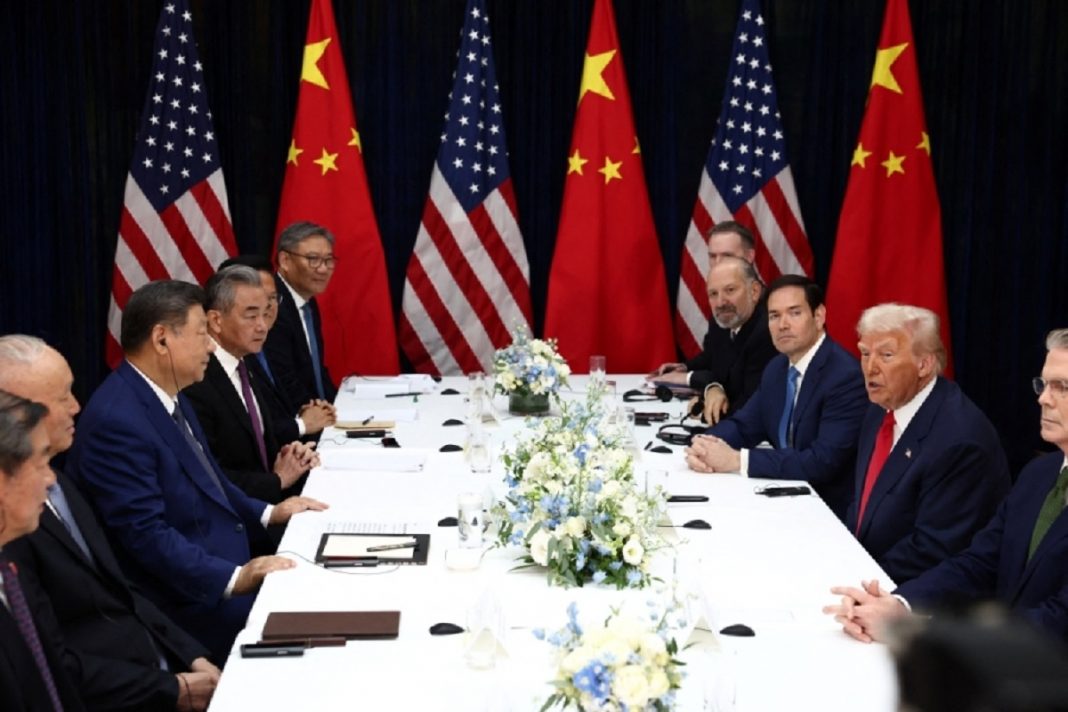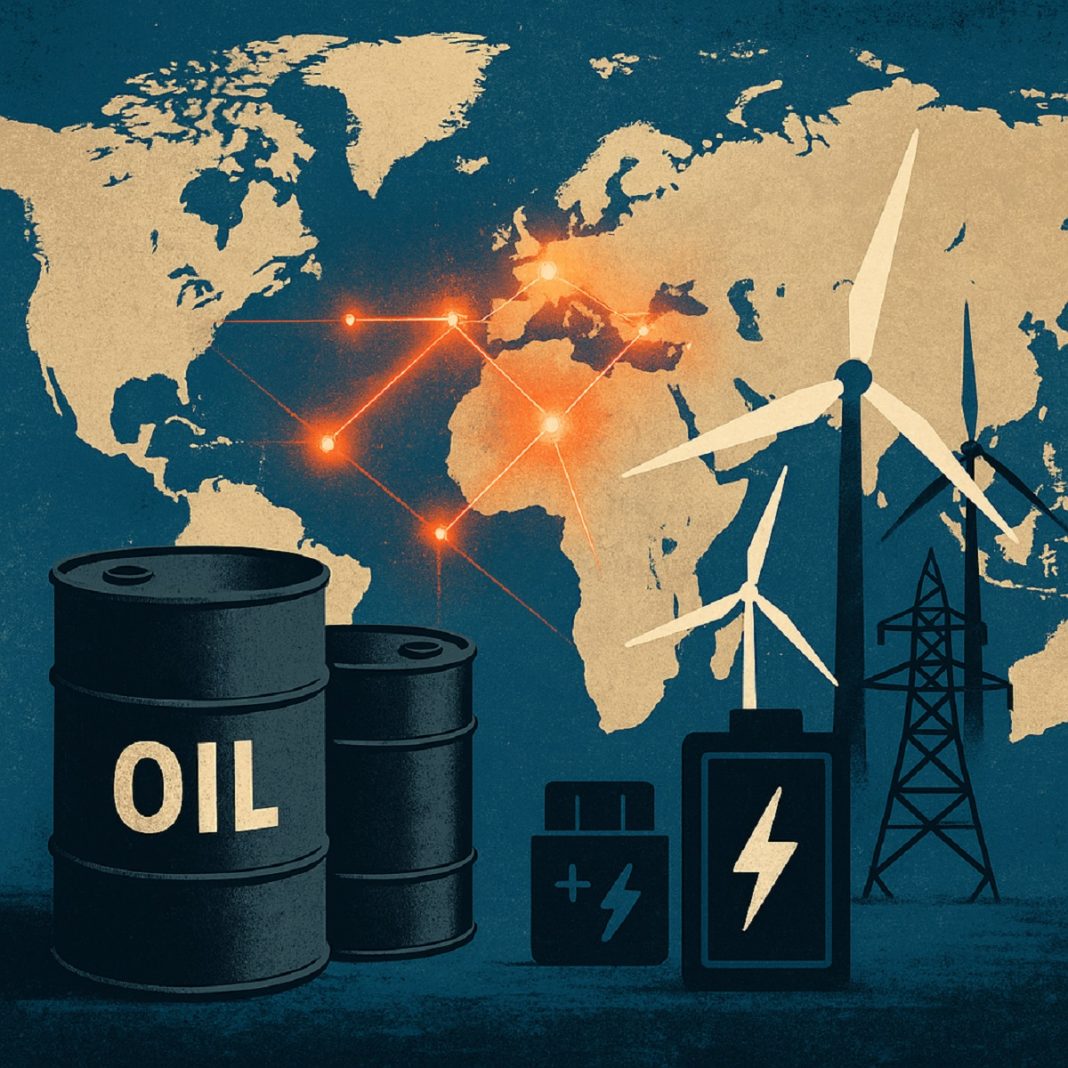Gabriel G Tabarani
The images from Seoul were meant to inspire confidence: President Donald Trump and Chinese leader Xi Jinping, smiling stiffly across a conference table, declaring a new era of “mutual respect.” Commentators called it a “reset,” a “window of opportunity,” a chance to cool the fever of U.S.-China rivalry. But beneath the polished optics, the same storm still brews. The illusion that great powers can simply talk their way out of confrontation has long haunted American diplomacy. And last week’s meeting did little to dispel it.
Two years ago, in September 2023, when Joe Biden was still president, a fierce debate divided Washington. Some argued that America’s hostility toward China had gone too far—that mistrust, not conflict of interest, was driving the world’s two largest powers toward crisis. They insisted that more dialogue, more trade, and more face-to-face diplomacy could rebuild trust. But history—and the hard experience of the past two years—suggests otherwise. The problem is not communication. The problem is incompatibility.
China and the United States are not adversaries by misunderstanding; they are adversaries by nature of their ambitions. The United States sees itself as guardian of an open, rules-based order in which sovereign nations can prosper freely. China, under Xi Jinping, envisions a world divided into spheres of influence, where powerful civilizations dominate their neighborhoods and weaker states know their place. These two visions cannot coexist peacefully in the same geopolitical space. They can be managed, deterred, and contained—but not reconciled by charm or conversation.
Trump’s renewed engagement with Xi reflects a familiar American instinct: the belief that a strong personality and a well-timed meeting can rewrite the laws of power politics. It is the same hope that led past presidents to court Beijing, from Nixon’s handshake with Mao to Obama’s “strategic reassurance” and Biden’s “managed competition.” Yet the pattern is unbroken. Every attempt to “reset” the relationship ends the same way: brief calm, followed by deeper mistrust.
For Beijing, engagement has never meant compromise. Xi’s regime treats diplomacy as a tactical pause, not a path to peace. When the United States extends a hand, China sees a trick; when it retreats, China sees weakness. This is not paranoia—it is strategy. The Chinese Communist Party’s survival depends on maintaining a sense of siege, on convincing its people that only one-man rule can defend the nation from foreign subversion. In that worldview, Washington’s calls for cooperation are always a Trojan horse.
For Washington, the trap is different but equally dangerous. Each new president wants to believe he can be the one to “stabilize” the relationship, to prove that the rivalry can be civilized. But rivalry, once it hardens, obeys its own logic. Neither side can reassure the other without losing something vital. The United States cannot stop arming Taiwan without undermining deterrence; China cannot stop threatening Taiwan without undermining the legitimacy of the Communist Party itself. The U.S. cannot withdraw its alliances in Asia without inviting chaos; China cannot accept those alliances without feeling encircled. Every olive branch becomes a weapon in disguise.
This is what makes détente so deceptive. The history of great-power politics is littered with examples of false calm: the hollow Anglo-German friendship before 1914, the appeasement of the 1930s, the fleeting U.S.-Soviet détente of the 1970s. In each case, diplomacy dulled vigilance while leaving the underlying conflict intact. The problem was never the lack of dialogue; it was the belief that dialogue alone could neutralize clashing interests. The same danger looms today.
Trump’s theatrics in Seoul will not change Beijing’s course. Within days of the summit, Chinese warplanes again crossed into Taiwan’s air defense zone. State media declared that Washington had finally “recognized China’s rightful place in the world.” The very meeting meant to ease tensions became another tool of propaganda. This is how illusions of peace can become instruments of pressure.
The United States does not need another mirage of reconciliation. It needs clarity—and endurance. Containment is an unfashionable word, but it remains the most realistic path to peace. That does not mean isolation or permanent hostility. It means building strength before seeking compromise, maintaining alliances before trusting adversaries, and deterring aggression before rewarding it. It means understanding that diplomacy is a tool of power, not a substitute for it.
China’s power, meanwhile, is not inexhaustible. Beneath the assertive rhetoric lies an economy weighed down by debt, youth unemployment, and demographic collapse. Its property crisis has shaken confidence; its “fortress economy” has alienated investors. The global goodwill it bought through trillion-dollar loans is fading as countries struggle to repay them. These are not momentary setbacks. They are the structural limits of a system that values control over creativity. Time, if used wisely, may prove America’s strongest ally.
That is why the United States should not rush to rewrite its China policy in the wake of Seoul. Strength, not sentiment, is what will preserve peace. The task ahead is not to win over Beijing but to prevent miscalculation—to convince China that aggression will fail, and that coexistence is possible only within clear boundaries.
The Trump-Xi meeting was not a breakthrough. It was theater, and in geopolitics, theater can be useful—but only if the actors remember the script. What matters is not whether the handshake looked warm, but whether the United States remains steady when the lights go out and the audience moves on.
The mirage of peace has misled America before. It must not again. Rivalries like this one end not with summits or smiles but with realism, restraint, and time. Until then, diplomacy can manage the storm, but it cannot calm the sea.
This article was originally published in Arabic on the Asswak Al-Arab website


